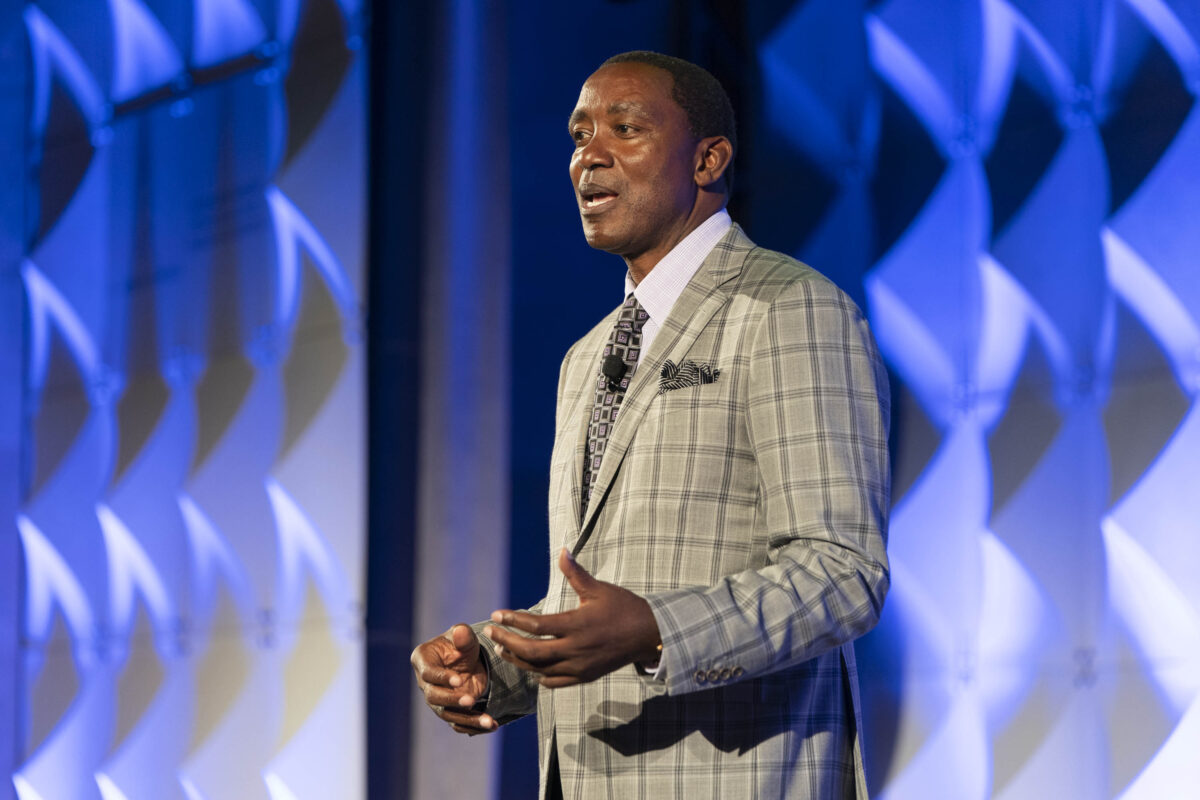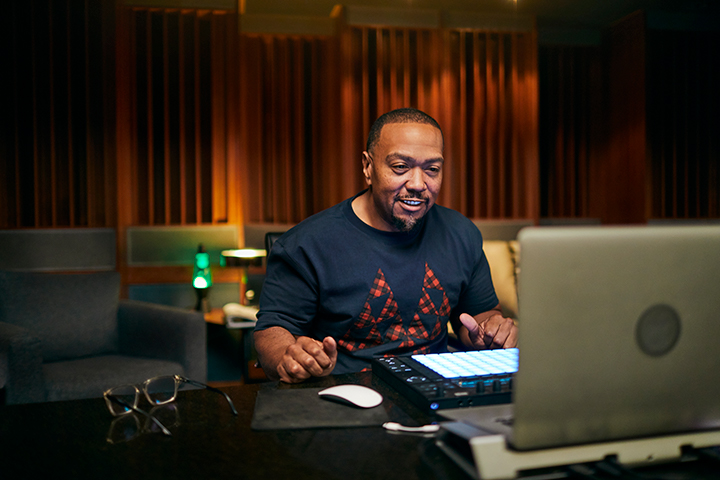Isiah Thomas isn’t only a basketball legend and NBA Hall of Famer, most famous for his 13-year tenure with the Detroit Pistons (1981-82 through 1993-94), where he was a 12-time NBA All-Star (the game’s MVP in 1984 and 1986, and holding the coveted Finals MVP for 1990). He also has more than three decades in business, as well as a long list of philanthropic initiatives.
Thomas’ service to educational, anti-crime, and anti-poverty programs began in Detroit when he was in the NBA and continues across the US. Thomas has awarded more than 100 scholarships to criminal justice students through the Isiah Thomas Scholarship at Indiana University, and offers a scholarship at University of California at Berkeley in the African American Studies department.
The serial entrepreneur is owner of several companies, including Isiah Imports and Cheurlin Champagnes. A recent venture is with Tand Properties, which revitalizes buildings and develops affordable housing. In June 2020, he became CEO and Vice-Chairman of One World Pharma, a licensed cannabis and hemp ingredient producer, in partnership with the Indigenous people of Colombia. The Edge, A Leader’s Magazine spoke to him about his great entrepreneurial ventures and drive.
Tell us about your first entrepreneurial venture.
When I was 10 years old, I shined shoes on the weekends…got my own polish and rags. I had to build my own shine box out of the crates that the soda used to come in. I decided to do that to make money. I started out shining shoes right outside of the church. I’d hit the morning crowd on Saturday and Sunday. Then, late at night, I’d hit the bars.
When did you do the “grown up” entrepreneur version?
I started Isiah International in 1990, selling candy bars and ice creams. We had the Isiah Bar in Detroit. My economics teacher in high school told me to always invest in things that I use and that I like. Of course, candy and ice cream are some of the things I like the most.
Then, the big one came when we bought American Speedy Printing out of bankruptcy. The thought was that we’d take technology and infuse it into an old mom-and-pop business that did not make the transition into technology yet. We had 700 chains, turned that around, and sold it.
When did you figure out what made you distinct as a basketball player?
This is a great question that I’ve never really been asked before. I’m so glad you asked because it’s [something] that myself as a player and those who were teaching me wanted to make sure I was different and thought differently about the game from an educational standpoint and a playing standpoint. To me, these really do correlate with business.
My business expertise is start-ups and turn-arounds. If you look at my early ages of playing, and if you were to compare it to a business, you’d call it a “start-up phase.”
In my start-up phase, what made me different was my teaching and my education. John McLendon, which was one of the first people I hired when I got to the Toronto Raptors, was one of my early mentors in life in basketball. He’s in the Hall of Fame. John McLendon invented fast-paced basketball.
I was also fortunate enough that he worked closely with Abe Saperstein, who started the Harlem Globetrotters. Curly Neal and Marques Haynes were the two ball handlers. When you look at my ball handling skills, you can trace it back to Curly Neal and Marques Haynes who taught me how to dribble a basketball. That in itself made me different and unique than everyone else who was learning to dribble and play.
Wanting your own style, creativity, originality in my early ages of start-up is what I strived to have—an original, creative, imaginative style of play that no one else was playing like at that time. You couldn’t put me in a box, and because of that, it gave me the opportunity to win and succeed at a very high level.
What have you learned as an entrepreneur?
The first thing that I’ve learned as an entrepreneur is that you have to make a plan and then work the plan. Then, you have to be able to adjust your plan along the way.
As you are going into any business, the three pillars that I look for are: A) can it meet my criteria of how much money we want to make? B) is it something that people will want? You can have a great idea but if people don’t want what you are selling, then it isn’t going to work. And C) can you surround yourself with the right team and people that can help you have success?
In any business, you are only as good as the team you are able to put together that walks out on the playing field with you.
What advice can you impart to new entrepreneurs?
You are going to fail. It’s how you learn from the failures: get up and move to success. No one starts out hitting grand slams unless you get lucky.
I was taught that when a teacher puts red ink all over your paper, that teacher is really trying to help you. If you don’t learn from the red ink on your paper, that’s on you. But if you allow the business and experiences of that red ink to help you get better, then you can get an A.
It’s like being a basketball player. You are going to miss a couple of shots. Too many times people come into business thinking they aren’t going to miss. Everything is going to be rosy. That’s not how it goes in any industry or profession. That’s the learning part, the education part, the “aha” moment that you look for.
Dave Gordon | Contributing Writer



















